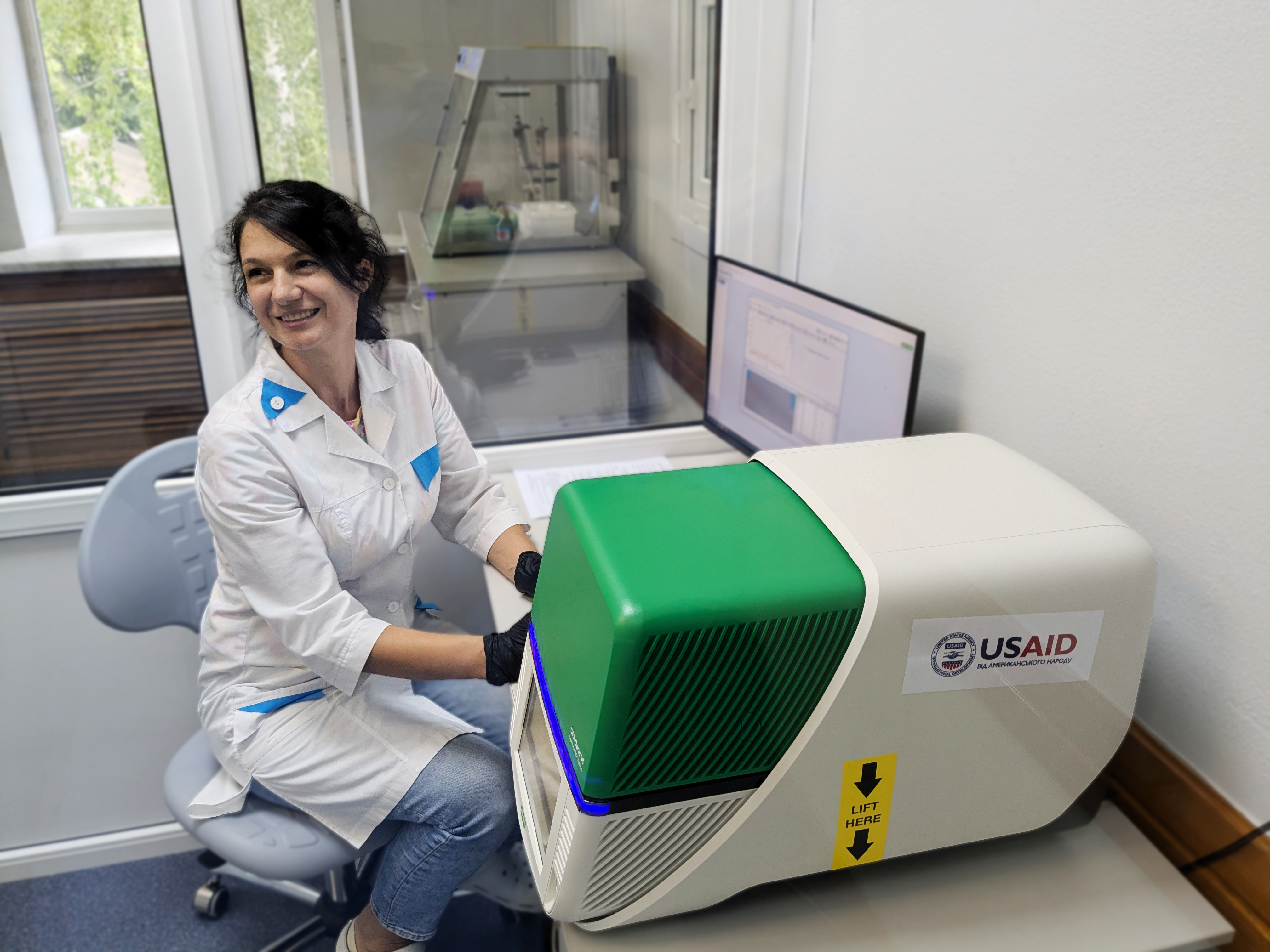The Odesa Regional Phytosanitary Laboratory modernizes while still providing essential services to agricultural exporters as operations return to the big Odesa ports. The laboratory analyzes grain crops using cutting-edge molecular diagnostics equipment and polymerase chain reaction (PCR) methods for plant disease detection. USAID, through it’s Economic Resilience Activity (ERA), supplied the laboratory with equipment and consumables.
The laboratory processes up to 30 samples daily for various tests. In 2024 alone, its specialists analyzed over 24,000 samples and conducted more than 80,000 tests. While this is slightly less than in previous years (over 27,000 samples in 2023 and more than 29,000 in 2022), modernization increased the quality and speed of analyses.
PCR testing equipment allows for real-time plant pathogen detection, reducing the time needed to issue phytosanitary certificates required for export to ensure the timely delivery of agricultural products to global markets. While undergoing the accreditation process, the lab has begun conducting potato analyses using PCR testing.
Acting Director of the Odesa Phytosanitary Laboratory, Kateryna Abuselidze, shared,
“Previously, analyzing potatoes could take up to seven days. Thanks to the equipment provided by USAID ERA, the process is now three times faster. This allows our clients to obtain results quickly, ensuring their agricultural products continue their journey to countries waiting for them. It’s inspiring that, even during wartime, Ukraine continues to feed the world and deliver grain to global markets.”
In April 2024, a remote workstation opened at Reni Port. USAID ERA provided a full set of equipment, consumables, and PCR tests. During the beginning of the war, specialists in Reni conducted about 15% of all tests. However, as exports returned to Odesa, this figure dropped to 2-4%. Still, the Reni branch remains essential, enabling quick sample processing and minimizing logistical costs for clients.
While technological advancements have increased efficiency, they have also raised the cost of analyses. For example, a PCR test for a potato sample now costs $60, compared to $35 using the older method. This price difference reflects the high accuracy of modern methods, which clients are willing to pay for, given the quality assurance.
USAID ERA supported 10 of 25 phytosanitary laboratories in all of Ukraine, providing consumables for daily testing.





